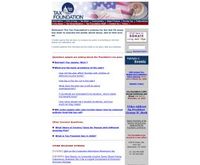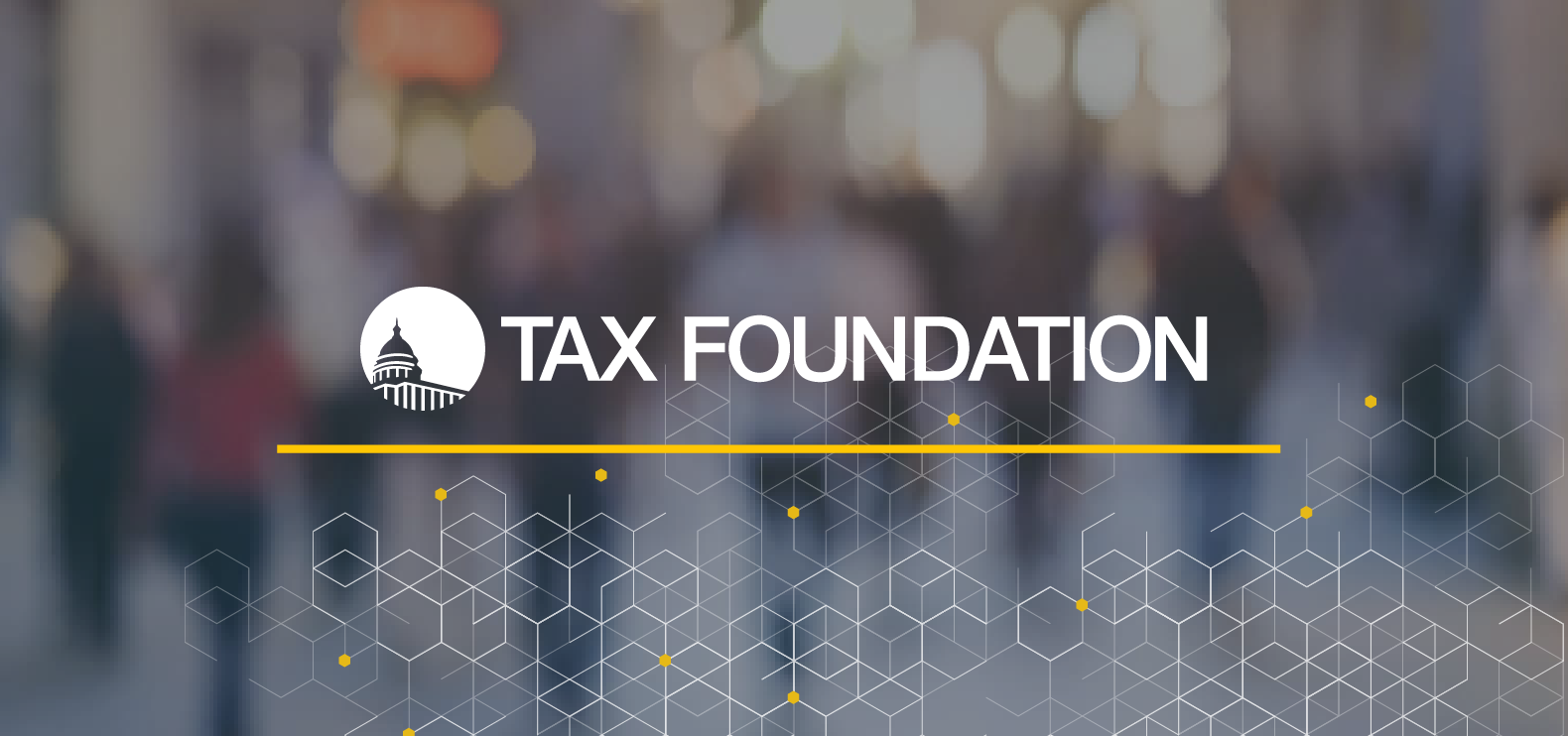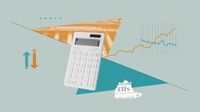Explore web search results related to this domain and discover relevant information.

The disagreement with a lodging tax committee spans multiple meetings, and a recommended $40,000 may be reduced by half.
Now, some council members want to cut next year’s SkyFest lodging tax funding from 22% of the lodging tax fund to 11%, despite repeated recommendations from an advisory committee responsible for recommending fund allocations.These reasons were used to deny the rental waiver for this year’s SkyFest, which the council had previously approved the last nine years. Now, these reasons — among others — are also being used to argue the reduction of SkyFest’s lodging-tax funding.She asked Blythe why not reduce both SkyFest and Hometown Holidays’ funding. “I’m not saying I don’t want to mess with the numbers,” she said. “I want to do it with logic.” · Logan said the lodging tax committee’s process was unbiased, unlike what some council members were now doing by picking and choosing who gets more money and who gets less.EVERETT — A dispute over lodging tax money has divided the Arlington City Council and could cause funding for a popular air show to be slashed by nearly half.

/PRNewswire/ -- TIFIN Give, the first donor-advised fund (DAF) platform designed for growth, today announced the launch of Tax Intelligence. This new...
Tax Intelligence is now available to advisors using TIFIN Give. Learn more at ... Give, a TIFIN company, is a digital donor-advised fund (DAF) platform that enables wealth firms to grow assets and strengthen relationships through modern philanthropy.The new feature democratizes tax gain harvesting, aims to improve wealth outcomes for individuals and drive growth for advisors using Donor-Advised-Funds.This innovation marks a major step in enabling advisors with real-time answers to strategic tax planning questions. While tax loss harvesting is routine, tax gain harvesting remains underutilized by the broader investor population despite being well suited for DAFs.With Tax Intelligence, advisors can, in-real-time, proactively address questions such as "Who stands to benefit most from opening a DAF?" while also helping their clients answer questions such as ""Which part of my portfolio should I donate to a DAF?". The platform analyzes client holdings and generates tax-efficient security contribution proposals.

Quant ELSS Tax Saver Fund, an ELSS fund offered an XIRR of 20.75% on SIP investments in the mentioned time period. Quant ELSS Tax Saver Fund
Motilal Oswal Midcap Fund, Invesco India Midcap Fund, Edelweiss Mid Cap Fund, Nippon India Growth Mid Cap Fund posted an XIRR of 22.58%, 21.29%, 21.09%, and 21.06% respectively, in the last 10 years. ... Quant ELSS Tax Saver Fund, an ELSS fund offered an XIRR of 20.75% on SIP investments in the mentioned time period.Around 11 equity mutual funds have offered over 20% SIP returns in the last 10 years. A further analysis showed that every mutual fund SIP has delivered double-digit XIRR in the same time period.Quant Small Cap Fund and Nippon India Small Cap Fund gave 24.54% and 23.01% XIRR in the last 10 years.Axis Small Cap Fund and HDFC Small Cap Fund gave an XIRR of 20.53% and 20.52% respectively on SIP investments in the last 10 years.
A trust fund tax is money withheld from an employee's wages (income tax, social security, and Medicare taxes) by an employer and held in trust until paid to the Treasury.
The income tax, employee share of social security tax and the employee share of Medicare tax that you withhold from the pay of your employees are part of their wages you pay to the Treasury instead of to your employees. The taxes are called trust fund taxes because they are held in trust until they are paid to the Treasury and your employees trust that you will pay the withholding to the Treasury by making federal tax deposits (FTD).For more information see Publication 3151, The ABCs of Federal Tax Deposits PDF and Failure to Deposit Penalty. Through these trust fund taxes that you withhold from your employees pay, employees pay part of the income taxes they owe on their personal income tax as well as their share of the social security and Medicare tax they owe.Trust fund taxes are income taxes, Social Security taxes and Medicare taxes you withhold from the wages of an employee as their employer.You must pay your employees' trust fund taxes along with your matching share of Social Security and Medicare tax to the Treasury through the Federal Tax Deposit System.
Learn the details of mutual fund taxes and the types of distributions that might be taxable.
Individual shareholders of mutual funds must report distributions paid by a mutual fund and any expenses connected with the investment. There are 5 types of distributions from mutual funds you should be aware of, each of which has different tax implications.The most common type of dividends, ordinary dividends are distributions by a mutual fund out of its earnings and profits. You should include ordinary dividends as dividend income on your individual income tax return.Capital gains distributions are paid by mutual funds from their net realized long-term capital gains and are taxed as long-term capital gains regardless of how long you have owned the shares in the mutual fund.Mutual funds may keep some of their long-term capital gains and pay taxes on those undistributed amounts. You must report your share of these unpaid distributions as long-term capital gains, even though you did not actually receive a distribution.

FundTax leverages GainsKeeper's tax lot accounting system for transaction processing and excise tax reporting.
Automate the calculation of tax reallocations on REIT securities as well as basis adjustments on securities sold. · Automate the calculation of the PFIC Mark-to-Market adjustment as well as the basis adjustment of sold PFIC's. Automate the calculation of holding period and domestic vs. foreign classification for reporting on QDI and DRD. ... More than 6,500 U.S. mutual and hedge funds already rely on FundTax® to automate complex fund tax calculations and reporting.With FundTax, institutions spend less time on tax reporting compliance, reduce risk by using an automated process, and have a better opportunity to control the tax posture of their funds.Spend less time on tax reporting compliance and reduce risk by automating tax adjustments for mutual funds with a streamlined process you can trust.Our suite of solutions provides major global financial institutions with detailed and accurate corporate action taxability information for portfolio and tax lot accounting, cost basis and withholding tax compliance.


Wall Street’s latest tax dodge doesn’t hide in the Cayman Islands or rely on complex derivatives. It’s engineered to turn a publicly traded fund into a tax-minimizing machine that hums quietly on autopilot.
A new exchange-traded fund will sell holdings just before their dividend dates — steering income away from ETF shareholders and away from their tax bills.While dividends have long been a defining feature of stock investing — a sign of corporate discipline and investor reward — Roundhill Investments plans to launch the S&P 500 No Dividend Target exchange-traded fund on July 10 with the ticker XDIV. Its ambition is simple but strategic: track the performance of the famous benchmark while dodging its payouts. The fund will sell holdings just before their dividend ...

Tax-efficient investments, like tax-managed funds, exchange-traded funds (ETFs), treasury products, and municipal bonds, can significantly reduce tax liabilities when strategically used. Tax-managed funds and ETFs typically generate fewer capital gains, which can lower your tax burden.
Because these accounts actively keep tax liabilities as low as possible, they're well-suited for taxable accounts. Municipal bonds are issued by state and local governments to fund day-to-day operations or special projects like building public schools or highways.Retirement accounts are inherently part of a tax-efficient investment strategy. To amplify the tax efficiency of these accounts while considering your own circumstances, consider investing in high-dividend or high-growth funds inside your account.They may also want to consult their financial or tax advisors periodically to review their portfolio's efficiency. Finally, they should stay up to date on contribution limits for retirement and tax-advantaged accounts and contribute as much as possible while still allocating enough funds for non-retirement-related goals.Tax-managed funds, municipal bonds, and Treasury bonds are common tax-efficient investment vehicles.
It also consists of excise taxes ... insurance premiums tax, and organization and qualification fees). Property taxes are administered at the local level and are not included in State General Fund revenue....
It also consists of excise taxes (including cigarette, alcoholic beverage, and pari-mutuel taxes), and other miscellaneous sources (including financial institutions tax, insurance premiums tax, and organization and qualification fees). Property taxes are administered at the local level and are not included in State General Fund revenue.The State General Fund is financed primarily by sales and income taxes.Also, funds are appropriated for Public Safety (including Department of Corrections, State Patrol, and Supreme Court operations), Public Finance (including Homestead Exemption, Aid to Cities, Counties, and Natural Resource Districts, and Teachers, Patrol, and Judges retirement) and other areas (including Economic Development, Game and Parks, Agriculture, Natural Resources, and transportation).The largest share of State General Fund dollars goes to Aid to Education and Health and Human Services.

The Tax Foundation is a Washington, D.C.-based think tank, founded in 1937, that collects data and publishes research studies on U.S. tax policies at both the federal and state levels. The Foundation's stated mission is to "educate taxpayers about sound tax policy and the size of the tax burden ...
The Tax Foundation is a Washington, D.C.-based think tank, founded in 1937, that collects data and publishes research studies on U.S. tax policies at both the federal and state levels. The Foundation's stated mission is to "educate taxpayers about sound tax policy and the size of the tax burden borne by Americans at all levels of government."The Foundation's stated mission is to 'educate taxpayers about sound tax policy and the size of the tax burden borne by Americans at all levels of government.' The Tax Foundation is organized as 501(c)(3) tax-exempt non-profit educational and research organization.The group is known for its annual reports such as 'Facts & Figures: How Does Your State Compare' which was first produced in 1941 and Tax Freedom Day for the United States, which it has produced since the early 1970s." -- Summary retrieved on October 7, 2019 http://dbpedia.org/resource/Tax_FoundationView Captures - Source Url: http://www.taxfoundation.org/ | View Beta Presentation. Some content may be under embargo.

Tax Foundation is the world's leading nonpartisan tax policy 501(c)(3) nonprofit. Learn more about the Tax Foundation.
The Tax Foundation is the world's leading independent tax policy 501(c)(3) nonprofit.Every day, our team of trusted experts strives towards that vision by remaining principled, insightful, and engaged and by advancing the principles of sound tax policy: simplicity, neutrality, transparency, and stability.Our Center for Federal Tax Policy, Center for State Tax Policy, and Center for Global Tax Policy each produce timely and high-quality research and analysis that influences the debate toward economically principled tax policies.Our experts are continuously analyzing the day’s most relevant tax policy topics and are relied upon routinely for presentations, testimony, and media appearances on tax issues spanning every level of government.

The National Tax Free Fund seeks to deliver a high level of income exempt from federal taxation by investing primarily in investment grade municipal bonds.
A portion of the portfolio's securities are not rated. Breakdown is not an S&P credit rating or an opinion of S&P as to the creditworthiness of such portfolio. Ratings apply to the credit worthiness of the issuers of the underlying securities and not the fund or its shares.We continue to underweight callable bonds priced close to par to improve the performance characteristics of the Fund and positioning the portfolio to have higher probabilities of performing better in a wide range of potential interest rate scenarios.Aggregate holdings are updated monthly, 30 days after month end. Aggregate holdings are presented to illustrate examples of the securities that the Fund has bought and the diversity of the areas in which the Fund may invest, and may not be representative of the Fund's current or future investments.You have 0 funds on your mutual fund watch list.
Tax Foundation is the world's leading independent tax policy nonprofit. We lead the tax reform debate toward smarter simpler policy.
As energy prices have declined, European countries have switched the focus of their windfall profits taxes—a one-time tax levied on a company or industry when economic conditions result in large, unexpected profits—from energy providers to the banking and financial sector.The United Kingdom Treasury’s proposal to increase in the value-added tax (VAT) registration threshold would hold back small business growth, reduce the efficiency of the VAT system, and lead to a revenue shortfall.Every day, our team of trusted experts strives towards that vision by remaining principled, insightful, and engaged and by advancing the principles of sound tax policy: simplicity, neutrality, transparency, and stability.Congress may have passed the One Big Beautiful Bill Act (OBBBA), but state lawmakers now face big choices. Most states link their tax codes to the federal system, meaning OBBBA’s provisions—good and bad—are about to ripple across state budgets.

A federal judge approved Vanguard Group's $25 million settlement of a lawsuit accusing the U.S. mutual fund company of improperly saddling investors in its target-date funds with inflated tax bills.
Sept 9 (Reuters) - A federal judge approved Vanguard Group's $25 million settlement of a lawsuit accusing the U.S. mutual fund company of improperly saddling investors in its target-date funds with inflated tax bills.Many investors moved to those fund classes from higher-cost retail classes. This forced retail funds to sell assets to meet redemptions and pass taxable capital gains to the plaintiffs and other remaining investors.Target-date funds contain mixes of stocks, bonds, and cash that are designed to become less risky as investors get older, and to be tax-efficient.Lawyers for the investors said the $25 million is in addition to a $133 million fair fund set up in the SEC case.

The black lung trust fund, which kicks in to pay black lung benefits when a coal company can’t, is funded by an excise tax only on coal sold within the United States. The majority of met coal is exported overseas.
Revenue from exported coal doesn’t go in to support the trust fund, but those miners are just as likely to get black lung as any other coal miner is. The least Congress could do is increase the monthly disability benefit that coal miners with black lung receive. It hasn’t kept up with inflation in decades. You can do the math yourself, or you can just ask any family that depends on the stipend as times get hard. So it felt like a slap in the face to give tax breaks to mining companies and not tie that tax break to solving the problems faced by the miners that keep those companies afloat.As an advocate for miners with black lung disease and their families, I was so disappointed to see a tax break for metallurgical coal in the Big Beautiful Bill Act in July. Why? Because that tax break will encourage the mining of coal that isn’t subject to the excise tax that supplements the Black Lung Disability Trust Fund.If they want to give a tax break to met coal, that’s fine, but they better also find a way to stabilize the trust fund while also improving benefits for the mining families that depend on the stipend.As an advocate for miners with black lung disease, I was so disappointed to see a tax break for metallurgical coal in the Big Beautiful Bill.

Distributions from mutual funds occur for several different reasons and are subject to differing tax rates. Many mutual funds bundle most of their payouts into single, net distributions at the end of each year.
Certain accounts, such as individual retirement and college savings accounts, are tax-advantaged. If you have mutual funds in these types of accounts, you pay taxes only when earnings or pre-tax contributions are withdrawn.If you move between mutual funds at the same company, it may not feel like you received your money back and then reinvested it; however, the transactions are treated like any other sales and purchases, and so you must report them and pay taxes on any gains.Investments that have increased in value but have not been sold have what are referred to as unrealized gains. This increase in value or appreciation is not taxable until the shares have been sold. If a mutual fund does not have any capital gains, dividends, or other payouts, no distribution may occur.Year-end fund distributions apply to all shareholders equally, so if you buy shares in a fund just before the distribution occurs, you’ll have to pay tax on any gains incurred from shares throughout the entire year, well before you owned the shares.

Traditional mutual funds and ETFs for tax-efficient exposure to domestic and international stocks as well as bonds.
And that assumes the investor didn’t sell at the end of the period but simply bought and held; the 1.57% per year tax-cost ratio was simply her carrying cost for the fund and doesn’t factor in any taxes due upon the sale.It’s usually not a good idea to hold taxable-bond funds in a taxable account, particularly for people in higher tax brackets, and that’s especially true now that yields have gone up to more meaningful levels. That’s because the majority of the return that bonds earn comprises income rather than capital gains, and income is taxed at the ordinary income tax rate versus the lower capital gains rate.The typical intermediate-term core bond fund returned 1.30% over the past 10 years and had a tax-cost ratio of 1.06%. For investors in the highest tax bracket who bought and held a taxable-bond fund in a taxable account (again, usually not advisable), their tax burden would have gobbled up most of the returns of the fund.And it’s certainly true that good asset location can help reduce the drag of taxes. For example, by holding taxable bonds in their tax-sheltered accounts, investors will be on the hook for taxes only when they pull money out, not for any income their bonds or bond funds kick off during their holding periods.

Replace the corporate income tax with non-voting shares that corporations would issue to the fund.
The Social Care Foundation acknowledged such a new levy would be ‘politically unpopular with some groups’
The report said: “If more money is to be put into social care then it either needs to come from individuals paying for themselves, or from the general taxpayer.” · Other recommendations include taking funding responsibilities away from local councils and instead having a national care system whereby money is awarded to individuals on the basis of a standardised assessment of entitlement to care.Social care should be funded through a new tax with the option for people to pay a pension-style “care supplement”, a report has suggested.The new report, authored by former Conservative minister and current SCF chairman Damian Green, has recommended a health and care levy – possibly in the form of an extra percentage levelled on national insurance contributions, by both employees and employers – to fund social care.His report, which did not specify how much the new levy should be, acknowledged the idea of a further tax to pay for social care will be “politically unpopular with some groups”, but he insisted it is “absolutely imperative that it (the Casey Commission) takes the chance to set the stark facts before the public and politicians”.

A federal judge in Philadelphia has granted preliminary approval to a $25 million settlement between Vanguard and investors who alleged the mutual fund giant’s actions left them on the hook unexpectedly high tax bills.
Addressing that concern, the new $25 million settlement is separate from a $133 million fair fund established as part of Vanguard’s agreement with the SEC earlier this year, according to attorneys representing the investors. The $100 million-plus SEC settlement announced in January, which included $92.9 million in restitution and a $13.5 million civil penalty, resolved allegations that Vanguard failed to properly disclose potential tax implications of certain share-class movements to investors in its target-date funds.As a result, retail funds faced large-scale redemptions, forcing them to sell assets and distribute the resultant taxable capital gains to remaining investors – many of whom were not prepared for such tax consequences.Target-date funds, which are widely used by retirement savers, are designed to automatically adjust their mix of stocks, bonds, and cash to become more conservative as investors approach retirement. They are also marketed for their tax efficiency, a feature that was called into question by the events at the center of this case.The approved compensation would be on top of an even larger $133 million fair fund set up in a related SEC settlement, according to lawyers for the aggrieved investors.







